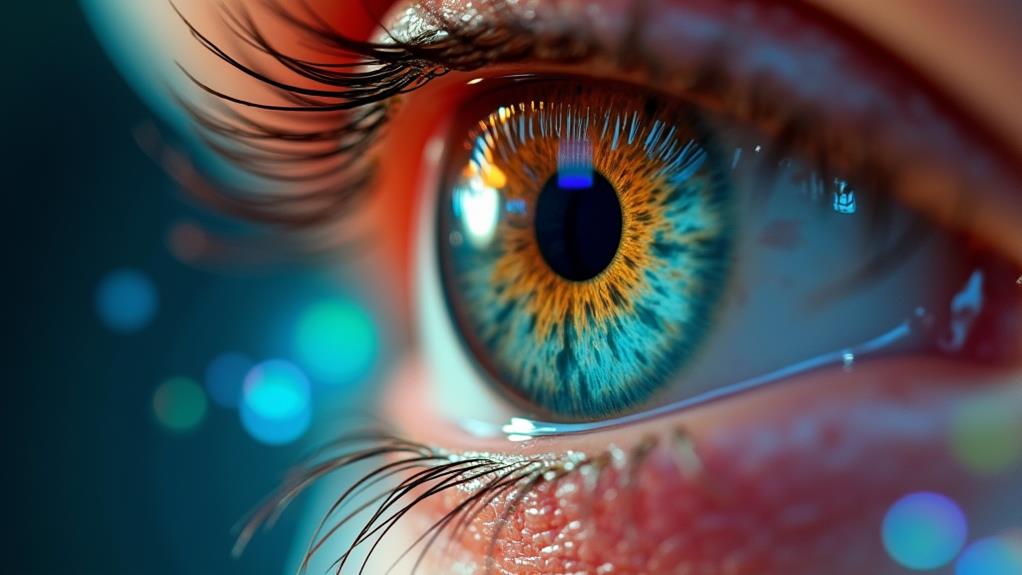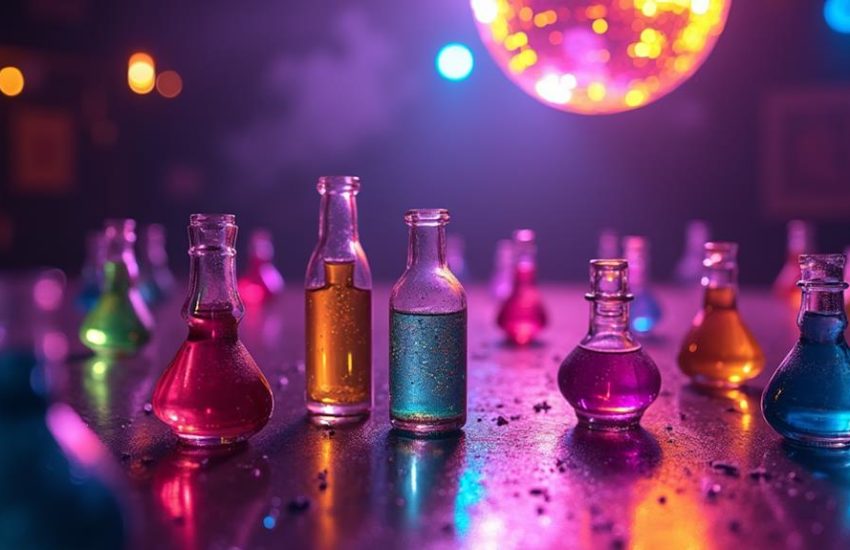Is Your Vision at Risk? The Shocking Link Between Poppers and Blindness
Recent studies have uncovered a troubling connection between popper use and vision impairment. Poppers, alkyl nitrites inhaled recreationally, can potentially cause severe eye damage, including maculopathy and decreased visual acuity. Users may experience symptoms ranging from temporary blurred vision to long-lasting retinal damage. A 2012 survey found that 2.2% of popper users reported eyesight issues. Warning signs include difficulty focusing, blind spots, and color perception changes. Although abstinence is the safest approach, those who choose to use poppers should be aware of the risks and practice harm reduction strategies. Understanding the science behind poppers and their effects on vision is vital for making informed decisions about one's health.
What Are Poppers?

Poppers, a colloquial term for alkyl nitrites, are volatile liquid substances primarily used as recreational drugs.
These inhalants have a long poppers history, dating back to the 19th century when they were first synthesized for medicinal purposes. Over time, their recreational use became prevalent, particularly within the LGBTQ+ community and club scenes.
Poppers usage typically involves inhaling the vapors from small bottles, resulting in a brief euphoric rush and muscle relaxation. Common types include amyl nitrite, butyl nitrite, and isobutyl nitrite.
Although some users report improved sexual experiences, it's vital to note that poppers are not without risks. According to queer health publications, users may experience eyesight issues and other health effects.
Their use can lead to various health concerns, including potential vision problems. Understanding the nature and effects of poppers is important for those seeking information about these substances and their potential impact on health.
The Science Behind Poppers
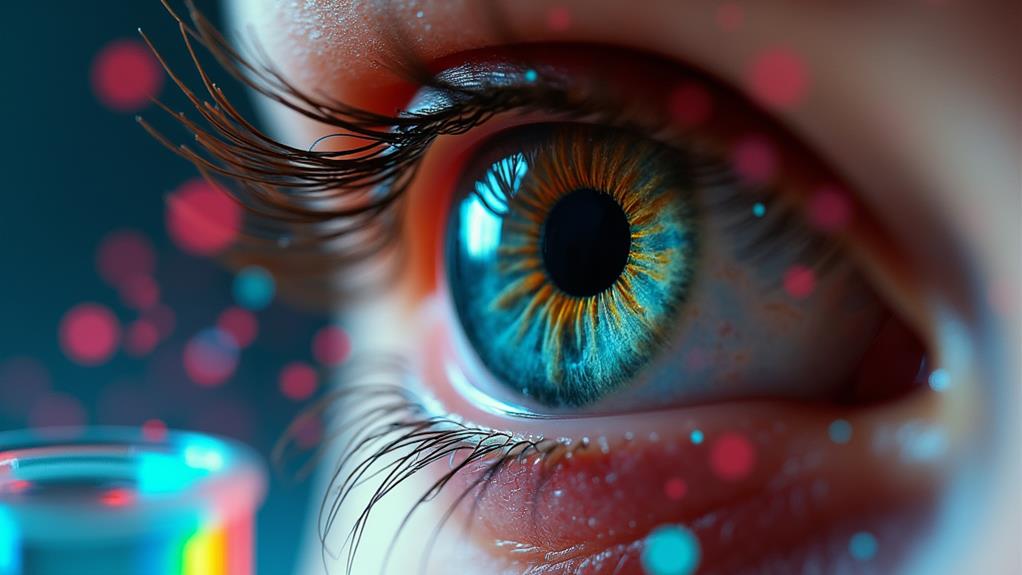
From a chemical perspective, alkyl nitrites, commonly known as poppers, are esters of nitrous acid. These volatile liquids rapidly vaporize at room temperature, releasing nitric oxide when inhaled. The chemical composition of poppers typically includes isopropyl nitrite, isobutyl nitrite, or amyl nitrite.
In addition to their euphoric effects, low blood pressure and fainting are common adverse reactions. Upon inhalation, poppers cause rapid vasodilation, relaxing smooth muscles throughout the body. This physiological response leads to a sudden drop in blood pressure and increased heart rate.
The neurological effects of poppers are primarily attributed to their impact on the central nervous system. They stimulate the release of norepinephrine and other neurotransmitters, resulting in feelings of euphoria and heightened sensory perception.
Understanding the science behind poppers is essential for our community to make informed decisions about their use and potential risks, including the concerning link to vision problems.
Poppers and Visual Impairment
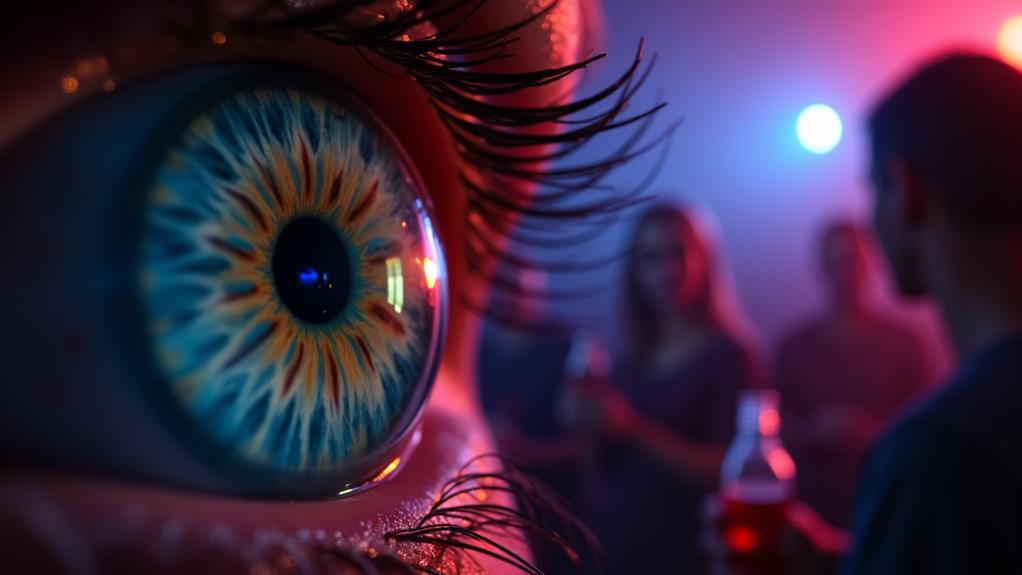
Recent studies have raised significant concerns about the potential link between popper use and visual impairment. Research indicates that inhaling poppers can have detrimental effects on visual health, particularly affecting the macula and retina. Users have reported experiencing symptoms ranging from temporary blurred vision to more severe, long-lasting damage.
Moreover, reports of eye issues, including popper maculopathy, have increased among users, emphasizing the need for awareness.
Key points about poppers effects on visual health:
- Maculopathy: damage to the central part of the retina
- Retinal damage: potential for permanent vision loss
- Phosphenes: flashes of light in the visual field
- Decreased visual acuity: reduced sharpness of vision
- Prolonged recovery time: vision may take weeks to improve
These findings underscore the significance of understanding the risks associated with popper use. Although some effects may be temporary, others could lead to permanent vision problems.
As research continues, it's vital for users to be aware of potential consequences and prioritize their visual health.
Risks and Warning Signs
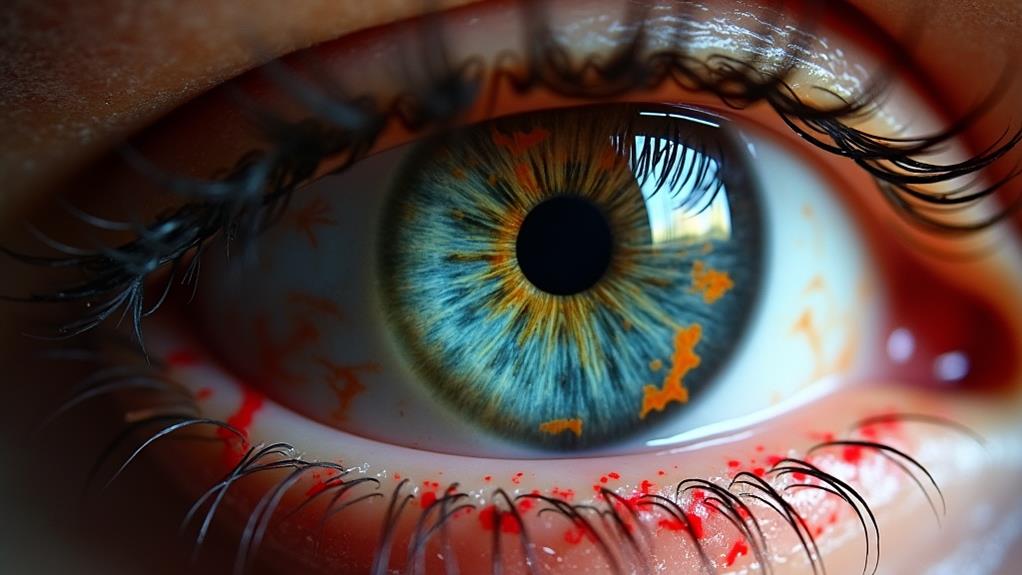
With the increasing awareness of popper-related visual impairment, it is vital to understand the risks and recognize warning signs associated with their use. Risk factors include frequent usage, prolonged exposure, and individual susceptibility to the chemical compounds in poppers.
Users should be vigilant for warning signs such as blurred vision, difficulty focusing, and the appearance of blind spots or flashing lights in their visual field. The 2012 survey revealed that 2.2% of users reported eyesight issues, emphasizing the significance of caution.
Other warning signs may include eye pain, increased sensitivity to light, and changes in color perception. These symptoms can occur immediately after use or develop gradually over time.
It's imperative for individuals who experience any of these warning signs to seek immediate medical attention from an eye care professional. Early intervention may help prevent permanent damage to vision.
Our community must prioritize awareness and support those affected by popper-related visual impairments.
Alternatives and Harm Reduction
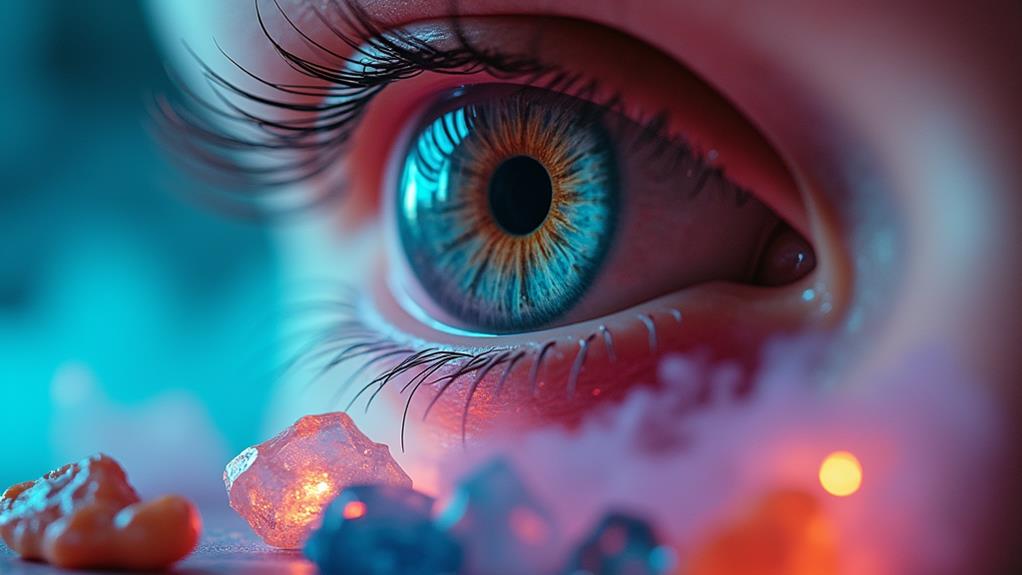
Given the risks associated with popper use, exploring safer alternatives and harm reduction strategies is vital. For those seeking similar effects, consider:
- Aromatherapy with fundamental oils
- Breathing exercises and meditation
- Tantric practices
- Sensory deprivation techniques
- Safe, consensual BDSM activities
These safer alternatives can provide sensory improvement or altered states without the vision risks associated with poppers.
For individuals who choose to continue using poppers, harm reduction strategies are vital. These include limiting frequency and duration of use, ensuring proper ventilation, avoiding mixing with other substances, and never ingesting the liquid.
Chronic use has been linked to notable respiratory issues, so it's important to monitor your overall health. Regular eye exams and immediate cessation upon experiencing visual symptoms are fundamental.
In addition, using lower concentration formulations and purchasing from reputable sources can help mitigate risks.
In the end, the safest approach is abstinence, but harm reduction can notably decrease potential damage for those who use.
Call Us To Assist You
The irony of seeking euphoria through poppers only to risk permanent visual impairment cannot be overstated. As these inhalants offer fleeting moments of pleasure, the potential for irreversible damage to one's eyesight lurks in every vial. As research continues to illuminate the dangers, users must weigh the ephemeral high against the prospect of a dimmed future. In the end, the pursuit of alternative recreational experiences may prove the wisest course for those unwilling to gamble with their vision.
